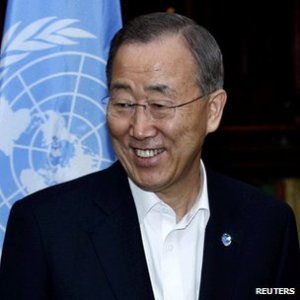http://www.bbc.co.uk/news/science-environment-16775264
The Run-Down
We have to protect the planet in order to have any kind of future. Check. Central banking deregulation lead to practices that brought the global economy to its knees. Got it. Energy sustainability would drastically improve the economic standing of those in developing countries and benefit efficient energy use in developed countries. Great. Continuing subsidies for fossil fuel producers is stupid. Yep. Establishment of a global education fund could benefit the poorest citizens of the world by bringing access to education via internet and provide the skills necessary for current jobs and promoting entrepreneurialism to ensure a healthy, competitive economy. Sounds plausible. Labeling goods with their environmental impact so consumers can make informed purchases and effectively vote with their dollars. Reasonable.
Thoughts
These are great ideas and certainly some changes need to be made on the global scale. The thing we must be careful of when engaging in international institutions is that we don’t lose our national sovereignty or paint the developed world into an economic corner, rendering it incapable of success or charity. Case in point: Germany has been saddled with an enormous chunk of EU debt in the aftermath of the global economic meltdown. How many Germans are stoked about that? I don’t know, but I wouldn’t be. The last time Germany was saddled with Europe’s debt, nationalist sentiments rose drastically, the Third Reich came into existence and we all got to celebrate with a world war. Britain stayed out of the EU because of fears of similar circumstances to the current financial fiasco. I’m not saying that the Rio+20 summit is going to spark a world war or bring back the Nazis. However, we must proceed with caution. We have to streamline our use of resources and advance education and critical thinking skills from the inner city to the frontiers of human existence, but in our zeal we must not cripple national governments, stifle economic growth or industries the world has come to rely on. We must look for long-term solutions, but we must also evolve into the paradigm of global unity. Communism looks great on paper but turns into totalitarian regimes precisely because in the upheaval of an armed revolution babies are oft thrown out with bath water, valuable lessons from history are ignored (or burned), and political purity tests become the method of weeding out dissenters who may agree with the ends but not the means or vice versa. We must evolve over a period of time, just as the rest of the planet has evolved to it’s current state through the ages. That said, we must not change too slowly, lest it be our undoing.
In Closing
In the United States there has been the long time struggle for a balance between Liberty and Security. So it must be with national and individual sovereignty vs. international governance. The path to the greater good is rarely a b-line or as obvious as a single ideology. Rather than the usual Ben Franklin’s liberty vs. security quote, I’ll instead leave you with this to take in mind with a wider scope than originally intended:
“I predict future happiness for Americans, if they can prevent the government from wasting the labors of the people under the pretense of taking care of them.”
― Thomas Jefferson

